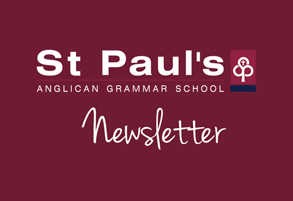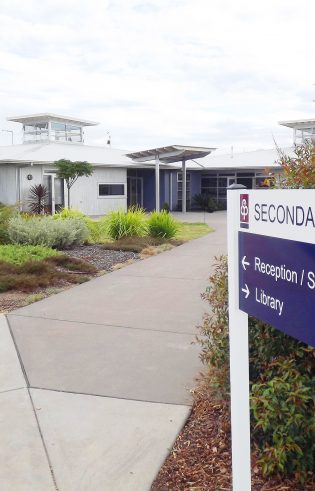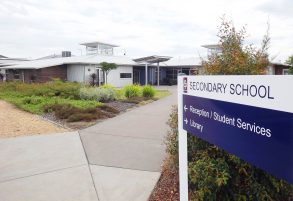In this issue
Careers News
What’s On:
• Warragul Secondary School
• Warragul Junior School
• Traralgon Secondary School
• Traralgon Junior School
WHAT’S ON Traralgon Secondary School
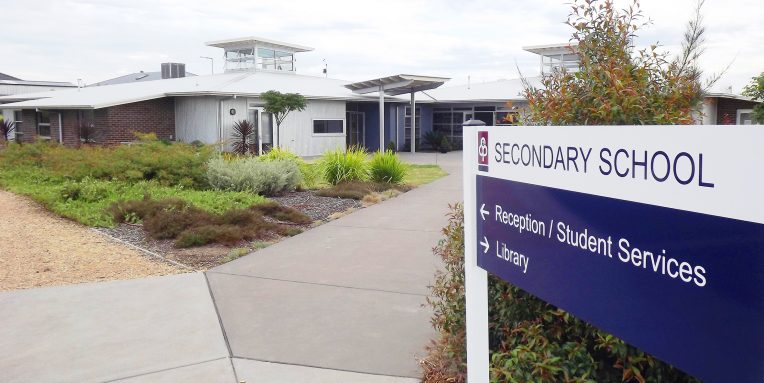
FEBRUARY
22 February Swim Training, Gippsland Regional Aquatic Centre, Traralgon, 6:00 am to 8:30 am
23 February SEISA Swimming, Badminton and Table Tennis Carnival, Melbourne Sports Centres (MSAC), 9:00 am to 7:30 pm
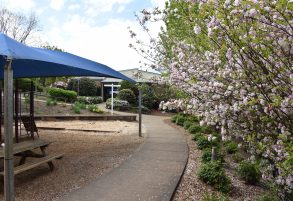
WHAT’S ON Warragul Junior School
FEBRUARY 22 February No Preps 24 February Year 6 STEMZONE Incursion Family Welcome Barbeque Evening, ELC and Junior School, 5:00 pm to 7:00 pm 28 …
WHAT’S ON Warragul Junior School
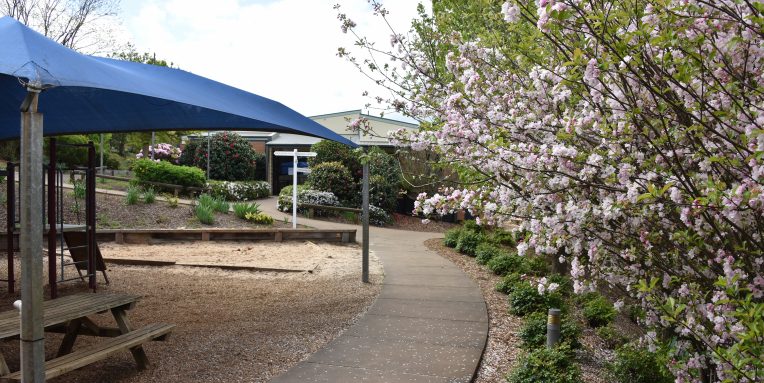
FEBRUARY
22 February No Preps
24 February Year 6 STEMZONE Incursion
Family Welcome Barbeque Evening, ELC and Junior School, 5:00 pm to 7:00 pm
28 February Division Swimming
MARCH
1 March No Preps
6 March Parent Prayer Group, Prideaux Centre, 9:00 am
Years 3 to 6 Athletics Carnival
9 March Prep to Year 2 Australia Reads Day
Years 3 to 6 ySafe Cyber Safety Student Education Session
ySafe Cyber Safety Parent Information Session, 7:00 pm
13 March Labour Day Public Holiday
14 to 17 March Year 5 Camp, Golden Valley
16 March Regional Swimming
20 March Years 3 and 5 NAPLAN
21 March Years 3 and 5 NAPLAN
Harmony Day
22 March Years 3 and 5 NAPLAN
Dr Justin Coulson ADHD Webinar, 7:00 pm
23 March Years 3 and 5 NAPLAN
Prep Excursion to Farm World
24 March Years 3 and 5 NAPLAN
27 March District Athletics
28 March ELC and Prep Discovery Morning
29 March Parent Teacher Interviews, 3:30 pm to 5:30 pm
30 March Parent Teacher Interviews, 3:30 pm to 8:00 pm
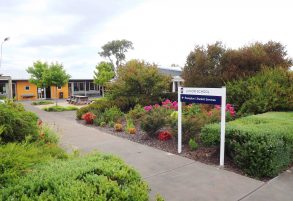
WHAT’S ON Traralgon Junior School
FEBRUARY 17 February Family Fun and Information Evening, 6:00 pm to 8:00 pm 20 February Morning Coffee and Chat, 9:15 am 21 to 24 February …
WHAT’S ON Traralgon Junior School
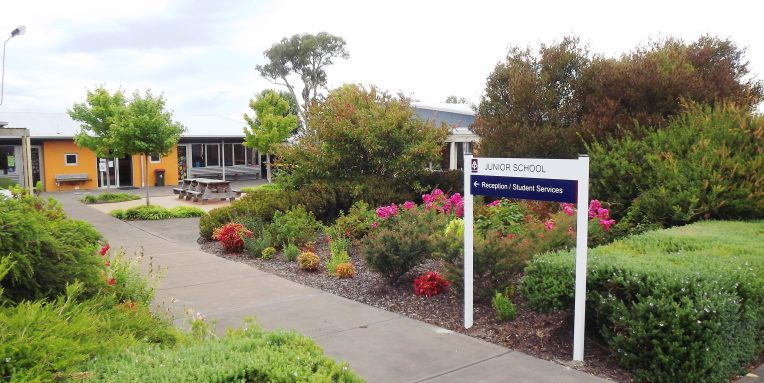
FEBRUARY
17 February Family Fun and Information Evening, 6:00 pm to 8:00 pm
20 February Morning Coffee and Chat, 9:15 am
21 to 24 February Year 5 Camp, Sovereign Hill
22 February No Preps
MARCH
1 March ELC to Year 6 Parent Student Teacher Interviews (PSTIs), 3:45 pm to 8:00 pm
2 March ELC to Year 6 Parent Student Teacher Interviews (PSTIs), 3:45 pm to 6:00 pm
3 March Clean Up Australia Day
7 March Parent Volunteer Induction, 2:30 pm to 3:15 pm
9 March Athletics Carnival
13 March Labour Day Public Holiday
14 March ELC Rabbit Rearing Program
Learning to Read Parent Evening, 7:00 pm to 8:30 pm
14 to 17 March Year 6 Urban Camp
17 March National Day of Action Against Bullying
15 to 27 March NAPLAN
23 March Morning Coffee and Chat, 9:15 am
24 March Performing Arts Scholarship Holders Concert, 7:00 pm
28 March District Athletics
ELC and Prep Discovery Morning
29 March Classroom Expo Afternoon, 2:30 pm
APRIL
3 April Year 6 Leadership Day ‘The Summit’
4 April Hoodie Up for Autism
Community Easter Hunt
5 April Cross Country
6 April Easter Service, 9:45 am
End of Term 2, Dismissal 2:20 pm
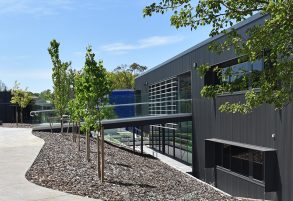
WHAT’S ON Warragul Secondary School
FEBRUARY 17 February Year 7 Camp returns, 3:00 pm Debating Workshop – DAV, Warragul Secondary School, 9:00 am to 3:10 pm 20 February Presentation Ball …
WHAT’S ON Warragul Secondary School
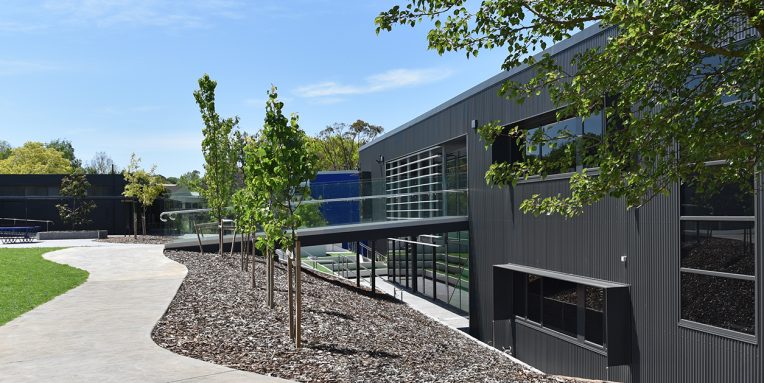
FEBRUARY
17 February Year 7 Camp returns, 3:00 pm
Debating Workshop – DAV, Warragul Secondary School, 9:00 am to 3:10 pm
20 February Presentation Ball Training, Warragul Junior School Gymnasium, 3:25 pm to 5:00 pm
21 February Year 11 Healesville Sanctuary Excursion, Environmental Science students, Healesville, 9:00 am to 3:00 pm
22 February Swim Training, Gippsland Regional Aquatic Centre, Traralgon, 6:00 am to 8:30 am
23 February SEISA Swimming, Badminton and Table Tennis Carnival, Melbourne Sports Centres (MSAC), 9:00 am to 7:30 pm
24 February Scholarships Close
Presentation Ball participation payment due
27 February Presentation Ball Training (plus boys suit fittings), Warragul Junior School Gymnasium, 3:25 pm to 5:00 pm
28 February Presentation Ball Parent Helper Meeting, Warragul Secondary School Library, 7:00 pm
MARCH
2 March SEISA Summer Sport, Intermediate/Senior, Round 3 (BYE)
Live4Life Crew Induction Day, selected Years 9 and 10 students, West Gippsland Arts Centre, 10:00 am to 2:00 pm
4 March Scholarship Testing, Warragul Secondary School, Traralgon Secondary School, 9:00 am
5 March SEISA Surf Trials, Phillip Island, 8:00 am to 11:00 am
6 March Presentation Ball Training – BOYS ONLY SESSION, Warragul Junior School Gymnasium, 3:25 pm to 5:00 pm
13 March Labour Day Public Holiday
16 March Presentation Ball Training – GIRLS ONLY SESSION, Warragul Junior School Gymnasium, 3:25 pm to 5:00 pm
20 March Presentation Ball Training, Warragul Junior School Gymnasium, 3:25 pm to 5:00 pm
27 March Presentation Ball Training, Warragul Junior School Gymnasium, 3:25 pm to 5:00 pm

CAREERS NEWS
No matter your pathway this year, we encourage you to read the Careers Newsletter and emails, posts on the Careers page of MyStPauls, meet with …
CAREERS NEWS
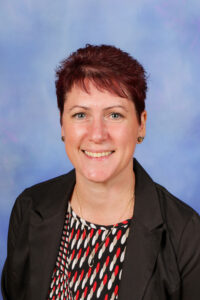 No matter your pathway this year, we encourage you to read the Careers Newsletter and emails, posts on the Careers page of MyStPauls, meet with me throughout the year, engage in opportunities such as work experience, open days and excursions, and be curious and excited about your post-school pathways. Speak to your family/guardians about opportunities that may be available and ask them about their roles and how they came to be where they are.
No matter your pathway this year, we encourage you to read the Careers Newsletter and emails, posts on the Careers page of MyStPauls, meet with me throughout the year, engage in opportunities such as work experience, open days and excursions, and be curious and excited about your post-school pathways. Speak to your family/guardians about opportunities that may be available and ask them about their roles and how they came to be where they are.
“The future belongs to those that believe in the beauty of their dreams” – Eleanor Roosevelt
Sarah Luck
Head of Careers
sluck@stpaulsags.vic.edu.au
Open Days and Information Sessions

Online information session for medical students
Charles Sturt University offers undergraduate medicine at the Orange, NSW campus in partnership with Western Sydney University. An online information session for prospective students will be held on Wednesday 29 March.
Book via Charles Sturt online session
University News
Early Entry
No doubt you have heard the term ‘early entry’ and you are keen to apply for programs. Early entry enables universities to look at factors other than just the ATAR when making course offers. It is important to know the following:
Early entry programs are different at each university. There are different application methods and different application dates. Each program takes different criteria into consideration. These could include:
- A soft skills statement
- Year 11 results
- A recommendation from your school
- A personal statement
- History of community service/leadership
Some early entry programs are designed to give applicants ‘unconditional offers’. This usually means a course offer that is ATAR and study score free. Others have conditions such as meeting a guaranteed ATAR and meeting minimum study scores.
The following two early entry programs are now open:
University of New England
Selection is based on a school recommendation.
Apply by: Friday 15 September
Apply here: Early entry University of New England
Charles Sturt University
Selection is based on Year 11 results and a soft skills assessment.
Apply by: Friday 7 April
Apply here: Early entry Charles Sturt University
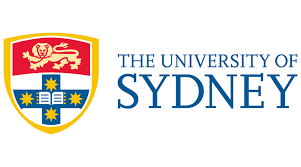 Academic Excellence Scheme
Academic Excellence Scheme
From this year, the University of Sydney has introduced the Academic Excellence Scheme to recognise domestic students who achieve high performance in higher levels of English and mathematics by applying adjustment factors to boost their selection rank for eligible courses. A student’s ATAR will not change; however, their selection rank can increase for particular courses based on these subject-related adjustment factors.
Students considering studying at the University of Sydney in 2024 or beyond, are recommended to find out more at: Academic Excellence Scheme.
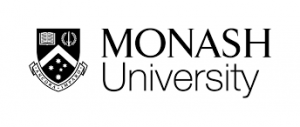
Why should students consider studying medicine, nursing or the health sciences at Monash University? The Faculty of Medicine, Nursing and Health Sciences at Monash University is one of Australia’s largest providers of education for doctors, nurses and allied health professionals.
The faculty gives seven reasons to study with them, click here to read: Reasons to study medicine at Monash
You might also like to browse their courses in medicine, nursing and health sciences
Scholarships
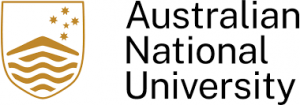
Australian National University (ANU) launched the Tuckwell Scholarship Program in 2013. The Tuckwell Scholarship Program at the ANU is the most transformational undergraduate scholarship program in Australia. A Tuckwell is not just about a student’s intellect. It is also about their desire and determination to use their natural abilities to realise their full potential so that they can make a difference in the world. All up one could say, this is no ordinary scholarship!
Tuckwell Scholar students will receive:
- $23,000 per annum (2022 rate) (increasing with inflation) for each year of the length of their undergraduate degree, to cover on-campus residential costs, books, and general living expenses
- priority access guaranteed to ANU-approved student accommodation
- an annual allowance to assist with their move to Canberra and to support two annual return journeys (for example airfares) between their home and the university for each year of their degree. The allowance will be dependent on the proximity of their family home to ANU.
- an allowance to help cover the transport costs for their parents to attend Commencement Weekend at the start of the program and
- an ANU Sports Centre membership for the length of their degree.
Scholarships are awarded based on four criteria:
- academic potential and achievements to date;
- other significant achievements to date, of any type;
- demonstration of the Attributes of a Tuckwell Scholar; and
- a desire to eventually give back to Australia.
Applying for a Tuckwell Scholarship is a three-stage process that commences with an initial application from yourself and a recommendation from a schoolteacher. Applications will begin in March 2023 and submissions must be made before the April 2023 deadline.
For more information browse Tuckwell Scholarship
Work Experience
Marine Science
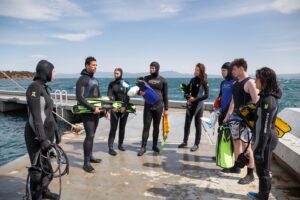
Experience six days as a marine scientist with The University of Tasmania. Years 11 and 12 students are invited to apply for this incredible program that aims to introduce students to temperate marine biology. Twenty-four students will spend a week at Maria Island and there are 14 scholarships available to cover flights, accommodation, meals and transfers.
For information and to register your interest, visit UTAS_Marine_Science
Applications close: 20 February
Online Work Experience

Forage is a free online work experience provider that gives you access to real industry-related tasks from actual employers. In almost every interview you will face a question about your industry-related experience – even as a school leaver. Whether you are interviewing for a job or a place in a course, you will need to be able to show that you have done your homework and confirmed that this industry is right for you. But if you have only just left school, it can be difficult to get that all-important experience, which is where programs like Forage can bridge the gap.
Forage and other similar providers offer work experience for a huge range of roles including software engineering, commercial law, marketing, litigation, human resources and hundreds more which means you should be able to find something that suits the job you are applying for. The programs can usually be completed relatively quickly online from home.
Check out their website to learn more: Forage
Gap Year Programs
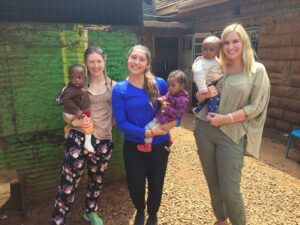
A gap year is commonly taken by Year 12 graduates who would like to delay the start of their university or TAFE course or apprenticeship/traineeship. The year provides a fantastic opportunity for graduates to participate in volunteering or overseas programs.
Year13 has put together a gap year guide of exciting ideas, check it out here: Gap Year Guide
For information on travel opportunities click here: Explore Travel
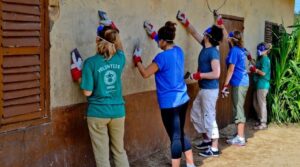
If a whole year seems too long to be away from home, Projects Abroad offer a huge variety of shorter programs including:
- conservation work in Botswana
- volunteer teaching in Cambodia
- medical internships
- learning Spanish in Argentina
For further details visit: Projects Abroad
ADF Gap Year Program
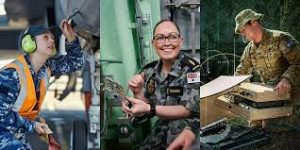
Year 12 students will soon be able to apply for the ADF Gap Year program. Students will spend an exciting twelve months in the Navy, Army or Air Force and get paid for meaningful work while travelling around Australia, gaining skills for life and making lifelong friends.
To start the application process, you can book the YOU (Your Options Unlimited) session early. This is the first step in the recruitment process.
For information and to book, visit YOU session
For other information, visit www.defencejobs.gov.au
Apprenticeships/Traineeships

Apprenticeships and traineeships are excellent post-school options. They are the perfect option for students who enjoy hands-on learning, would like to gain amazing skills and have a qualification that is recognised anywhere in Australia.
Gap year traineeships are excellent for graduates who would like to gain industry skills and a qualification before starting university study and also for graduates who are not sure what pathway they would like to take in the future.
It is a great idea to get as much work experience as possible to increase your competitiveness for employment, work out the best industry for you and to create networks and contacts.
Australian Apprenticeship Pathways have developed an excellent four-step guide to assist you to start planning, read it here: Four step guide
Medicine, Dentistry and Oral Health

If you are in Year 12 and plan to apply for medicine, dentistry and/or oral health to start in 2024, you may need to sit the UCAT ANZ (University Clinical Aptitude Test). You will sit the test mid-year and selected universities use your UCAT ANZ results as part of the selection process, in conjunction with your ATAR and Year 12 results and in some cases, an interview. You will only have one chance to sit the UCAT ANZ this year. It will cost you $325 to sit the test, or $199 concession and you will be able to receive your results straight away.
For more information and to register visit: UCAT
Registrations open: Wednesday 1 March and close on 17 May
The testing dates will be from 3 July 2023 to 12 August 2023.
UCAT Preparation Sessions
You have the choice to start preparing for the test early. There are several private companies that offer commercial preparation programs such as:
NIE: www.nie.edu.au
Med Entry: www.medentry.edu.au
It is important to note that private companies are not endorsed by the universities that use the UCAT.
Students who are preparing for entry into any of these courses are encouraged to familiarise themselves with the format of the test at UCAT Test Format and the practice tests and preparation material provided at UCAT Preparation.
UCAT Information Session
The NIE is hosting a free webinar on 21 February from 7:00 pm – 9:00 pm
Click here for further details and to register: UCAT information session
UCAT Mock Exam Day 2023
This is a free online UCAT trial exam that will be sat by thousands of students. You will receive your mock UCAT score and have a benchmark to work on improving for the exam later in the year. You can sit the exam any time on Sunday 26 February.
Register for the test via UCAT Masterclass

Students considering studying medicine or dentistry are invited to access the iCanMed website for information about where to study medicine and dentistry, what the entry requirements might be, and all things related to the UCAT test required for most medicine courses. This is an excellent ‘go to guide’ to use as a resource.
Events
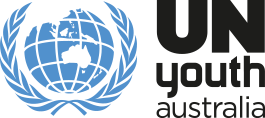
UN Youth Victorian State Conference 2023
Glenmore, Victoria
UN Youth Victoria’s annual State Conference brings together over 150 delegates from across the state for a weekend of leadership, diplomacy and advocacy. Come along and take part in the global conversation about international law and its influence in the 21st century. This flagship event presents an opportunity for you to develop your skills in public speaking, negotiation and critical thinking alongside an incredible group of like-minded students. State Conference is open to all Victorian students in Years 10 to 12 who have an interest in or would like to learn more about contemporary global affairs. This event is suitable for young people of all levels of experience!
The 2023 State Conference spans across two and a half days, giving you a whole weekend to make new friends from across the state! Delegates (students) will spend the first day of the State Conference meeting each other and getting to the heart of international law interactive workshops through a speaker panel and by tackling a simulated Interactive Problem Solving activity. The final day of the State Conference is your chance to emulate a member state of the United Nations in Model UN committee debates. Get into a diplomat’s shoes for a day and do your best to pass resolutions that will benefit the global community and align with your national interests – not always an easy task.
For young people who may need financial or other types of assistance, please use the accessibility scholarship application.
Friday 3 March – Sunday 5 March 2023
Find out more here: UN Youth State Conference
Resources

Nine podcasts with all the study tips and advice you could ever need
Looking for study tips and love listening to podcasts? You might want to check out these gurus with all the insights:
- Study with Jess – A YouTube-based podcast dedicated to helping students study smarter, not harder
- CDU Study Skills – The “I wish I’d known that” podcast with tips from uni students
- The Exam Study Expert – Tips for working smarter, not harder from a psychologist
- The Study Sessions – A podcast that offers advice and support for students looking to improve their study habits
- The Skills Pod – All about maths and study skills from the Uni of Chester’s Academic Skills team
- Chloe Made Me Study – Perfect for non-traditional students who are mature age, studying online, or just don’t fit into the normal ‘student’ box
- The College Info Geek Podcast – A podcast that provides practical advice for students on a variety of topics, including studying, test-taking and productivity
- The Productivity Show – Tips on productivity, time management and efficiency in all areas of your life
- UnstoppableTeen Podcast – With study skills, employability tips and more
How to network at school events: tips and tricks for students
Networking is an important skill for students to develop, as it can help them build connections and expand their professional opportunities. School events are great opportunities for students to practice their networking skills, as they bring together like-minded individuals from diverse backgrounds.
Here are some tips and tricks for students looking to network effectively at school events:
- Do your research: Before attending the event, research the attendees and the organization hosting the event. This will help you understand the purpose of the event and identify individuals who you would like to connect with.
- Prepare an elevator pitch: An elevator pitch is a brief and concise introduction of yourself. It should include your name, what you study and what you hope to achieve. Having a clear and concise elevator pitch will help you make a strong first impression and start conversations more easily.
- Dress appropriately: First impressions are important and your attire is a big part of that. Dress in a way that is professional, yet comfortable. Your attire should match the type of event and the attendees you will be interacting with.
- Be confident and approachable: When you attend the event, be confident and approachable. Smile and make eye contact when speaking with others. People are more likely to remember you if you make a positive impression.
- Ask questions: Ask questions about the individuals you meet, their backgrounds and their experiences. This will show that you are interested in them and will help you build a connection.
- Follow up: After the event, make sure to follow up with the individuals you met. This can be done through a simple email or LinkedIn connection request. Maintaining these connections will help you build a professional network that you can rely on in the future.
Career Planning
The team at My Career Match have developed a free program for high school students that is broken into five key categories:
- Career planning
- Promoting yourself
- Getting a job
- Personal development
- Mind, body and soul
Students can choose which categories and lessons they would like to work through.
Visit: My Career Match
Career Spotlight
Victoria Police
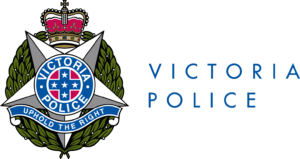
Victoria Police has four different roles available for students who might be interested in pursuing a career in policing.
- Police Officer
- Protective Services Officer
- Police Custody Officer
- Victorian Public Servant
For a brief overview of each role and to watch recruitment videos, visit – Becoming a Police Officer
Experience and attributes the Force is looking for;
Not every 18-year-old will be ready to apply but those who are gathering life experience whilst they are in high school will be more competitive throughout the recruitment process. For example:
Employment in a customer service role
Provides exposure to people of all works of life and develops communication, teamwork and conflict resolution skills. For example, working at McDonald’s one day a week.
Volunteer experience
Develops a sense of community-mindedness and communication skills. For example, working at the local surf lifesaving club or community centre.
Sporting club experience
Develops teamwork, communication and leadership skills, not to mention the healthy level of fitness that is a requirement of the role.
Overseas travel
Provides exposure to other cultures, religions and languages and fosters a sense of independence and assertiveness.
For information on eligibility criteria and the recruitment process, visit the Victoria Police careers website, www.police.vic.gov.au/careers
Information sessions
Bookmark the following page and check regularly for upcoming career information sessions: Information sessions
Intelligence and Policy Analyst

The Your Career website states that Intelligence and Policy Analysts collect and analyse information and data to produce intelligence and to develop and analyse policies guiding the design, implementation and modification of government and commercial operations and programs.
The Good Careers Guide website states that Policy Analysts develop and advise on policies that guide government and commercial departments and organisations.
Some of the day-to-day tasks include:
- organising, collecting, collating and analysing data and developing intelligence information, such as electronic surveillance
- compiling and distributing intelligence information using briefings, maps, charts, reports and other methods
- liaising and consulting with program administrators and other interested parties to identify policy needs
- reviewing existing policies and legislation to identify anomalies and out-of-date provisions
To become an Intelligence and Policy Analyst, a student usually needs a bachelor degree in intelligence operations, political science, international relations, or another related field to work as an Intelligence or Policy Analyst. It is also quite common to complete postgraduate studies.
There are a number of universities in Victoria that offer courses, or majors within other courses, related to political science and international relations. Some of these include:
- Bachelor of International Studies at Deakin University
- Bachelor of Global Studies at La Trobe University
- Bachelor of Politics, Philosophy and Economics at La Trobe University
- Bachelor of Politics, Philosophy and Economics at Monash University
- Bachelor of International Studies at RMIT University
- Bachelor of International Studies (Development) at RMIT University
- Bachelor of International Studies (Global Security) at RMIT University
- Bachelor of Arts (majoring in politics, power and technology) at Swinburne University
- Bachelor of Arts (majoring in politics and international studies) at the University of Melbourne
Spotlight on Agriculture Degrees in Victoria in 2023
Growing enough food to sustain the world is one of the biggest challenges the world is facing in the 21st century. Below are several degrees that prepare students to become experts in the science of agriculture, so they can take on an advisory role in agriculture and farming practices.
For a comprehensive list of courses (including the many double-degree options) on offer at Victorian universities, TAFEs, and Private Providers, visit VTAC
| INSTITUTION | COURSE NAME | VCE PREREQUISITES | MAJOR STUDIES IN 2023 |
| LA TROBE UNIVERSITY | Bachelor of Agriculture | Units 3 and 4: a study score of at least 25 in English (EAL) or at least 20 in English other than EAL; Units 3 and 4: a study score of at least 20 in any Mathematics. | Agriculture. |
| Bachelor of Business (Agribusiness) | Units 3 and 4: a study score of at least 25 in English (EAL) or at least 20 in English other than EAL. | Agribusiness. | |
| Bachelor of Science (Crop Science) |
Units 3 and 4: a study score of at least 25 in English (EAL) or at least 20 in English other than EAL; Units 3 and 4: a study score of at least 20 in any Mathematics. | Crop science. | |
| MARCUS OLDHAM COLLEGE | Bachelor of Business (Agriculture) | n/a, but completion of Year 12, the ATAR, and participation in an interview are all considered for selection. | Agriculture, Farm Management and Agribusiness. |
| Bachelor of Business (Agribusiness) | n/a, but completion of Year 12, the ATAR, and participation in an interview are all considered for selection. | Agribusiness. | |
| MELBOURNE POLYTECHNIC | Bachelor of Agriculture and Technology (Agronomy Major) |
Successful completion of Year 12 | Agronomy major. |
| Bachelor of Agriculture and Technology (Viticulture and Winemaking Major) |
Successful completion of Year 12 | Viticulture and Winemaking major. | |
| UNIVERSITY OF MELBOURNE | Bachelor of Agriculture | Units 3 and 4: a study score of at least 30 in English (EAL) or at least 25 in English other than EAL; Units 3 and 4: a study score of at least 25 in one of Maths: Mathematical Methods or Maths: Specialist Mathematics or at least 30 in Maths: General (Further) Mathematics. | Agricultural economics, Plant and soil science, Production animal science. |
| WILLIAM ANGLISS INSTITUTE | Bachelor of Food Studies | n/a, but completion of Year 12, the ATAR and participation in an interview are all considered for selection | Agriculture and Farming Systems, Culinary Artistry, Culture and Cuisine, Diet and Health in Society, Economics and Global Impacts, Food Movements and Social Change, Food and Gastronomy in Literature and Media, Innovation and Entrepreneurship. |



